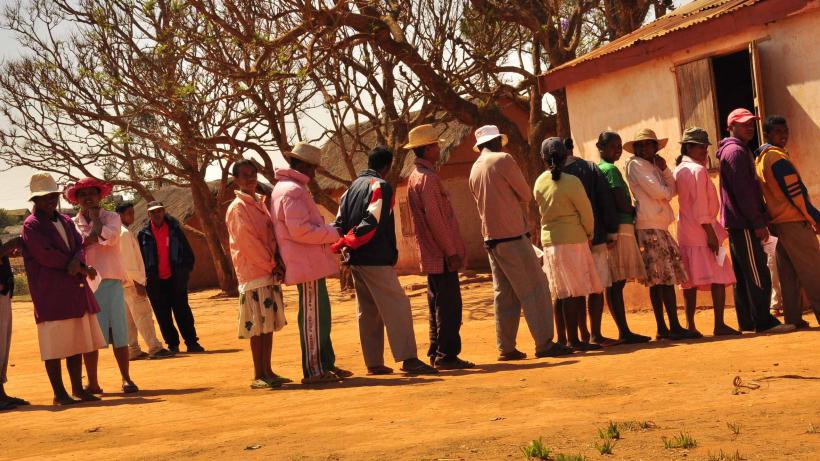
Is vote-buying always bad for development?
Elections in the developing world suffer from considerable problems such as ballot fraud, low voter education. electoral violence, and clientelism. If developing world elections do not revolve mainly around policy accountability, there could be important consequences for economic development
Vote-buying seems thoroughly undemocratic. Lobby-groups capturing the democratic process sounds suspicious enough, but when elections are determined by whoever hands out the most cash; well that shouldn’t happen. Moral arguments aside, vote-buying certainly shouldn’t happen, from an economist’s point of view at least, when there is no way to enforce the transaction. Yet, vote-buying happens – and quite frequently in many parts of the world too. This puzzling feature of many elections, particularly how it affects electoral behaviour, is something we need to understand better.
Consequences for economic development
In a world of informed voters, political economists would argue that competition between candidates should drive the outcome towards efficiency. Unfortunately, the real world is more complicated. In the developing world particularly, the democratic process has many weaknesses: competition might be hampered by credit constraints and voters’ lower education will likely affect the demand for information, relieving candidates of closer scrutiny. Elections in the developing world also suffer from other problems, from ballot fraud and electoral violence to clientelism (notably, clientelism differs here from vote-buying in that it involves handing out favours if an election is won, and is usually based on longer-term relationships between the candidate and clients which make transactions easier to enforce). The point here is that if developing world elections don’t revolve mainly around policy accountability, there could be important consequences for economic development that we seek to understand.
Wanting to know more about the effect of vote buying on electoral behaviour, we devised a randomised field experiment in São Tomé and Príncipe (which saw an increase in vote-buying after oil was discovered) and we followed around a voter education campaign. Highlighting the illegal nature of vote-buying, and stressing that voting should be done in good conscience even if money or gifts had been received, the campaign distributed a leaflet and went door-to-door to discuss it with voters. By looking at voter turnout and candidate selection in the randomised areas where the campaign took place, we can infer the likely effect of vote buying on electoral outcomes. We also carried out direct surveys with voters to gather their perceptions and experiences of vote-buying, as well as their reported behaviour – a benefit being that we could design a behavioural measure of the demand for political accountability on corruption in the public services, and we could also quantify whether respondents answers were affected by any conformity bias (simply conforming to the campaign in reporting vote-buying outcomes).
It turns out that the campaign was effective in weakening the impact that vote-buying has on electoral outcomes. Respondents report a decreased perception that money offered by candidates affected voting decisions and an increase in the perception that voting was done in good conscience. The effect wasn’t only on perceptions: for actual voter behaviour at the polls, increased voter education (due to the campaign) curiously decreased voter turnout (3-6%), increased the vote share of the incumbent and decreased the vote share of the challenger. The campaign also led to a lower frequency of vote-buying, and at a lower price. In addition, my behavioural measure did not pick up any statistically significant increases in demand for political accountability.
What can we draw from these results?
First of all, it appears that vote buying has a positive effect on participation, and challengers employ vote buying more than incumbents. It seems that there is an incumbency advantage at play in the democratic process here – possibly because an incumbent has more ability to engage in clientelism. Despite the assumption that vote buying could only harm democracy, it seems that in this particular case, it can actually lead to higher competition between candidates when challengers can use it to counter the incumbency advantage.
However, it would obviously be a step too far to say that these results imply vote-buying should be encouraged. What we do know from this is that voter education can work, and can be employed to combat electoral malfeasance. Yet, vote-buying itself is murky territory. On the one hand, it could be that vote buying leads to worse public policies when it becomes a substitute for public good provision. On the other hand, though, vote buying can benefit challengers and increase political participation. If we were simply to take these results in isolation, we might interpret them as positive. But improved electoral competition can only help development if there is real policy accountability – and it is unlikely that vote-buying helps policy accountability.

